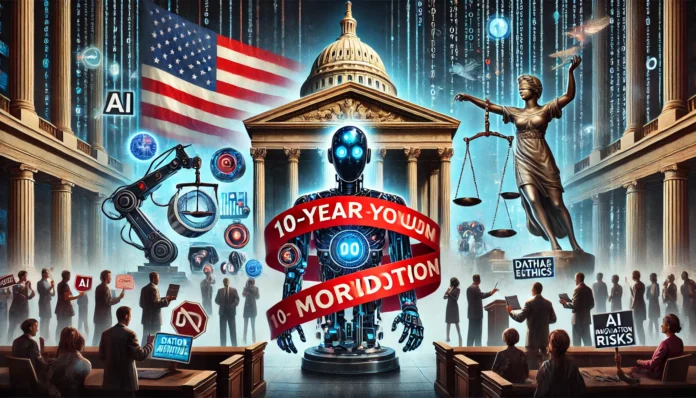In a stunning flashpoint for AI policy, the U.S. Senate Commerce Committee advanced a provision in the “One Big Beautiful Bill” that would ban state and local governments from enforcing AI regulations for ten years. The federal moratorium, hidden in a sprawling budget-reconciliation package, has ignited fierce debate from Silicon Valley to state capitals.
What the Bill Does
As currently drafted, Section 43201 of the OBBBA prevents any state or locality from enacting or enforcing laws that govern AI systems, including those addressing algorithmic bias, data privacy, automated decision-making, deepfakes, or consumer protections—all for a full decade.
Why It Matters
- Uniformity vs. Protection: Supporters argue a federal floor avoids patchworks and promotes consistent innovation-friendly rules. Tech giants, including Meta and Amazon, reportedly favor such uniformity .
- State Pushback: More than 250 state legislators, including California’s Legislature, are pushing back. They call it federal overreach and warn it would suspend current bills on chatbots, healthcare AI disclosure, and bias audits . California recently passed bills SB 243 and SB 420 targeting AI-loneliness bots and system transparency.
- Security & Accountability at Stake: AI policy experts warn that a moratorium could delay urgently needed protections. Cybersecurity strategist Katrina Rosseini labeled it a national security risk, arguing local oversight is essential for safeguarding critical infrastructure.
Industry and Political Fallout
Anthropic CEO Dario Amodei criticized the move in a New York Times op‑ed, calling it “too blunt” and urging a federal transparency standard instead of a blanket ban. Meanwhile, media outlets like The Verge and Axios warn the moratorium could dismantle consumer protections and foster a regulatory “Wild West” controlled by Big Tech.
What Comes Next?
The moratorium still faces Senate scrutiny and may be struck on procedural grounds. Even if passed, the final language could be modified—such as linking compliance to state broadband funding instead of an absolute freeze. Meanwhile, state capitals like Sacramento are bracing for federal preemption.
Bigger Picture
This clash highlights the tension between federal uniformity vs. local responsiveness in governing fast‑moving AI technology. The stakes are enormous: from algorithmic fairness and personal privacy to tech sovereignty and democratic control.




